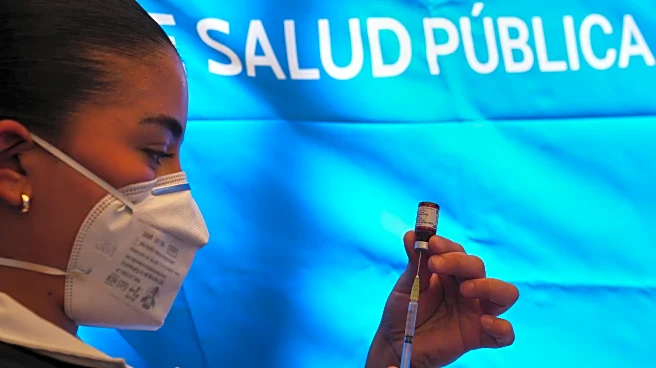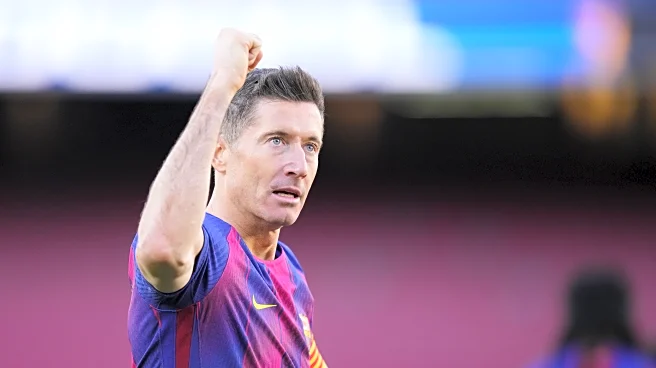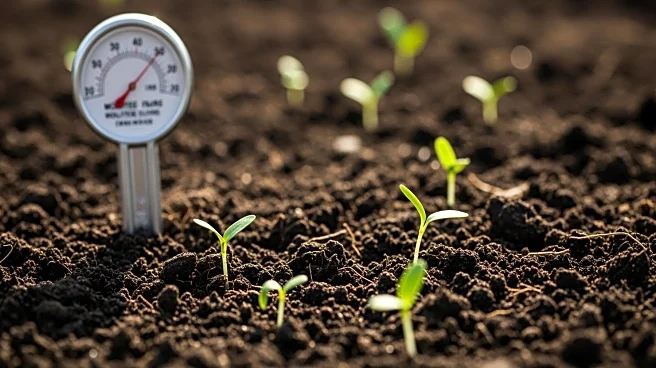Rapid Read • 8 min read
Rachael Cummings, the Gaza humanitarian director for Save the Children International, has highlighted the dire situation in Gaza as the Israel-Hamas conflict continues. Speaking on 'This Week With George Stephanopoulos,' Cummings described the conditions as catastrophic, particularly for children and increasingly for adults. She noted that clinics operated by Save the Children are experiencing unprecedented levels of crisis, with a significant rise in malnutrition among children, pregnant women, and breastfeeding mothers. The World Health Organization reports nearly 30,000 children under five are malnourished. The crisis extends beyond food shortages, affecting hospitals and healthcare centers, with many seeking help due to severe health complications. Israel has initiated new airdrops of humanitarian aid, but Cummings expressed concerns about their effectiveness, advocating for controlled land routes for aid distribution.
AD
The humanitarian crisis in Gaza has profound implications for the region and international stakeholders. The escalating malnutrition and health issues among vulnerable populations, including children and mothers, underscore the urgent need for effective humanitarian intervention. The situation challenges global humanitarian organizations and governments to coordinate aid delivery efficiently. The ongoing conflict and humanitarian needs could influence international diplomatic efforts and policy decisions regarding the Israel-Hamas situation. The crisis also highlights the broader impact of prolonged conflict on civilian populations, potentially affecting regional stability and international relations.
Israel has announced a tactical military pause in three areas of Gaza, allowing the United Nations and other aid organizations to deliver food and medicine to secure regions. This development may facilitate more effective humanitarian aid distribution, but the situation remains precarious. Humanitarian agencies, including Save the Children, are poised to manage safe and dignified distributions if access is granted. The international community may increase pressure on stakeholders to negotiate ceasefire terms and address the humanitarian needs comprehensively. Continued monitoring and advocacy by humanitarian organizations will be crucial in ensuring aid reaches those in need.
The crisis in Gaza raises ethical and legal questions about the responsibilities of warring parties to protect civilian populations. The situation may prompt discussions on international humanitarian law and the obligations of states and non-state actors in conflict zones. Long-term implications include potential shifts in international humanitarian policy and increased focus on conflict resolution strategies that prioritize civilian welfare. The crisis also highlights the resilience and challenges faced by humanitarian workers operating in conflict zones, emphasizing the need for robust support systems and international cooperation.
AD
More Stories You Might Enjoy












